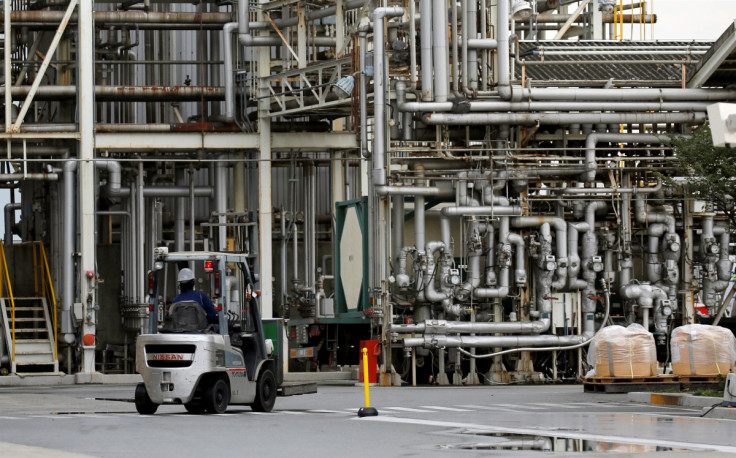Japan's Sept Factory Output Posts First Fall In 4 Months

Japan's factory output fell in September for the first time in four months as manufacturers took a hit from rising costs for raw materials and the global economic slowdown.
But in a brighter sign for the world's third-largest economy, retail sales grew for a seventh straight month, raising hopes for a sustainable boost in consumption after the easing of COVID-19-related border controls for foreign tourists earlier this month.
Factory output fell a seasonally adjusted 1.6% in September from a month earlier, government data showed on Monday, larger than economists' median forecast for a 1.0% decline.
It marked the first month-on-month fall in four months in industrial production and followed a 2.7% rise in August.
A 12.4% decline in auto sector production, its biggest fall in eight months, drove down the overall index. Output in the chemical and production machinery sectors also decreased in September.
Manufacturers surveyed by the Ministry of Economy, Trade and Industry (METI) expected output to fall another 0.4% in October and rise 0.8% in November.
While coronavirus-induced supply bottlenecks are easing, demand-side risks from the global economic slowdown could further drag on firms' output, a METI official told a media briefing, adding manufacturers' confidence remains weak.
A Reuters corporate survey also showed souring sentiment among Japanese factories earlier this month, with inflation among major concerns for businesses.
While Japan's annual consumer inflation rate was at 3.0% in September, the prices firms charged each other rose 9.7% in the same month.
Inflationary pressures in import-reliant Japan have been exacerbated by a prolonged slide in the yen, which hit a fresh 32-year-low against the U.S. dollar this month.
"We haven't heard much from manufacturers that the weak yen is positive per se for their production," the METI official said based on its factory output survey. "Rather, with rising procurement costs on the weak yen, coupled with (higher) energy prices, some firms have voiced concerns for their business conditions."
On Friday, the government announced a 39 trillion yen ($264 billion) package as an inflation countermeasure funded by an extra budget of 29.6 trillion yen, while the Bank of Japan decided to keep its ultra-loose monetary easing policy unchanged to support the fragile economy, even with the risk of fuelling the yen's further weakness.
Retail sales rose 4.5% year-on-year in September, extending a rebound since March when the government ended domestic coronavirus curbs. Analysts had expected 4.1% growth.
On a seasonally adjusted month-on-month basis, retail sales grew 1.1% in September.
A further bounce is expected in coming months after Japan eased border controls on Oct. 11 for foreign tourists.
Economists polled by Reuters last week expected the Japanese economy to expand an annualised 2.0% in October-December, slightly better than their previous estimate, while pointing out the biggest risk to Japan's economy over the next year is a prolonged period of U.S. monetary tightening.
($1 = 147.6500 yen)


© Copyright Thomson Reuters 2024. All rights reserved.




















